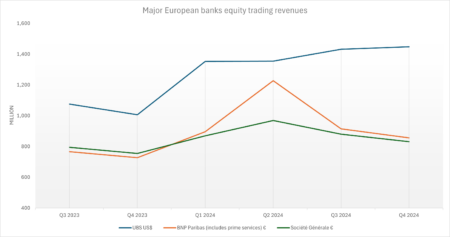 Global Trading looks at best practice in tail risk hedging for buy-side desks, including strategies, resourcing and dealer relationships.
Global Trading looks at best practice in tail risk hedging for buy-side desks, including strategies, resourcing and dealer relationships.
Markets are close to record highs, and bullishness among fund managers reached extreme levels in December, according to BofA’s global survey. But some traders at buy-side firms are busy scouring the markets for tail hedges, ready to protect their portfolios against a market meltdown.
An example is Boris Molls, head of markets for Brightwell Pensions, the company that manages the £36 billion assets of the British Telecom Pension Scheme, one of the UK’s biggest defined benefit pension funds. With the scheme taking a de-risking path towards what it calls ‘cashflow-aware investing’, it must periodically sell equity-like assets. Molls’ mandate is to ensure that the transition materialises as planned, whatever happens in the markets. Another example is fund giant Axa Investment Managers, which has €35 billion invested in multi-asset funds that switch between equities and bonds with the aim of diversifying investors against market downturns. That worked until 2022, according to Laurent Clavel, Axa IM’s global head of multi-asset.
“Bonds lose value. Equities lose value,” Clavel told delegates the FIX Trading Community Paris conference. “You talk to your client as multi-asset manager, and you go, ‘I lost on both accounts’. And the reaction I got a lot was, ‘Okay, should I stop multi-asset?’ The way we felt at the time is we cannot go back to the client another year and say, ‘Guess what happened? Bond yields went up, and it derated equities.’ Because he’s going to say, ‘yeah, you already told me that at the end of 2022 I thought you would learn your lesson.’ So, we’re trying to learn our lesson.”
For two very different reasons, Brightwell and Axa IM have reached a similar destination. Brightwell needs to protect fixed pension cashflows from fluctuations in the assets that back these liabilities. Axa IM needs to ensure that its multi-asset proposition insulates client portfolios from cross-asset downturns, and thus protect the stream of fees it earns from these clients.
And Clavel has given up trying to rely on sell-side firms to help predict when such downturns might happen. “If you look last summer at the yen carry trade unwind and the spike in VIX, how many sell-side firms flagged that this could happen?” he says “Now they can explain to you all about the yen carry trade and how it was at risk of unwinding but how many people saw that entering into the summer? None.”

Getting the desk ready
The first challenge in any hedging strategy is to define the exposure being hedged. BTPS has about 11% of assets, or £2.8 billion, invested in listed equities, according to its 2024 annual report – a consequence of UK regulation that limits the risk of DB funds. The scheme also owns about £5 billion of ‘equity-like’ assets such as absolute return, infrastructure and property. Such asset classes are sometimes described as having quasi-fixed income cash flows.
But Molls believes these assets will behave like listed equity in a crisis, which might happen at the same time as these assets have to be sold. “We are planning certain redemptions, and the cash of those redemptions will be used to buy corporate bonds and government bonds,” Molls told Global Trading. “But the value of these redemptions might go down when the market sells off.”
“We have verified to ourselves that our private equity and real estate investments are highly correlated with public equity markets, if you actually have to redeem them quickly,” he says. “People will say private equity is not correlated, but if you really, really need to sell it at that point, then it’s highly correlated.”
“Say next year we want to sell £500 million in illiquid equity-like assets. If liquid equity markets sell off by 25% then that £500 million might actually go down by 30%. So the stressed beta of real estate to equity, for example, is greater than one.” By applying this ‘stressed beta’ to our clients’ future cash flow requirements, the notional amount of hedging protection can be much larger than the amount of equities on a pension fund’s balance sheet, Molls explains.
“We established how much money we need to generate in a certain shock. Let’s say we want to sell £500 million” he says. “Now we can say, if the market sets off by 25%, I need to make 30% of £500m in cash. And that’s my mandate – a hedge with an agreed cash return for a given sell-off.” This is not a typical buy-side mandate, but then again Molls is not your typical buy-side trader. He started out structuring and selling derivatives for Societe Generale, where he counted BTPS as a client, and then became head trader of BTPS in 2012, reporting to Brightwell’s chief investment officer. There, using the structures he helped invent at SocGen, he became a pioneer in using algorithmic and quantitative investment strategies as a way of managing tail risk. Meanwhile, Axa IM’s starting point was to find something that would increase in value in 2022-type scenarios. This goal led the firm towards option-based, or convex strategies “The idea is, could we create bond-like convexity, through something else than bonds?” Clavel explains. “And the answer is, obviously yes. It’s called equity puts.”
Managing hedging cost
The challenge with all such tail risk hedging mandates is the premium or cost of the options. Called negative carry or bleed by traders, this eats into investment returns. Even out-of-the-money options involve significant bleed, Molls explains.“Consider a scenario where I need to hedge a six month sell-off larger than 20%. You could say, I can do this perfectly with put options on the S&P 500 and the Euro Stoxx. But that tends to be quite expensive. Because of this, we are using alternative strategies and have some room for relative value,” Molls says.

A similar philosophy is used at Axa IM by Clavel’s team, where the strategy is run by portfolio managers Cesar Vanneaux and Nicolas Armet. “What we do internally is a dynamic gamma strategy,” Clavel continues. “The principle is that something could happen at any time, and basically, you should have something systematic in your portfolio that is efficient and that you don’t have to think about. So that’s what we’ve done.”
“The idea is to optimise the negative carry to be as little as possible, and to optimise the puts, especially the time where you purchase and the maturity and the strike so that it’s as efficient as possible,” Clavel says. “You want to have an insurance policy when nobody does and when everybody tells you that the market is going to go up, when insurance policies don’t look relevant.”
“We started in 2016, using time-spread collars,” Molls says. “You buy long-dated puts, you sell short-dated calls, and then you can do some twists around it. We were the first manager of a pension fund to do this systematically and in size.”
The tail hedge grew steadily, and by June 2021, BTPS was long £3.3 billion notional of equity put options according to its annual report. In his quest to obtain the needed tail risk protection at low cost, Molls has adopted increasingly complex trading strategies.
“If I want to hedge everything below a sell-off of 20%, I can buy a six-month put with 80% strike,” he says. “However, when the market sells off by 20%, vol generally also goes up. So, maybe I want to buy a different put, that has more volatility exposure, that’s further out of the money and works out to be cheaper.”
“The next level is put spreads,” Molls continues. “I could buy the 70%, I sell the 50% and leverage this up. Or I take it one notch further, since I don’t really care about first 10% of the market loss, I sell a 95% and I buy 90, I buy 80%, I sell 70%. You can see how it gets quite complex and requires dedicated derivatives portfolio managers.”
In addition to portfolio managers, such strategies need a risk team as well. “One of the complexities is understanding if the hedge will work,” Molls notes. “Fortunately, we have a risk team that can stresses our hedge strategies to assess if the hedge would be effective.”
Currently, BTPS has £1.8 billion of self-managed exchange-traded equity options by notional amount, according to its annual report. They constitute an outcome-based equity hedge that allows for relative value that emphasises hedge certainty, Molls observes. Brightwell traders implement the hedge directly in the market using several tier-1 broker-dealers for execution and clearing. Brightwell’s portfolio managers also manage the BTPS liability-driven investment (LDI) portfolio and use their gilts to manage liquidity for daily margining of derivatives.
Unlike BTPS, Axa IM does not rely on its tail hedges to provide the cash needed to pay clients, so does not need to wait for them to mature – it can sell the options at a higher price. Clavel explains how it works. “Buy it when it’s cheap, and the funny thing is, when things go upside down, the price of the protection goes up,” he says.
“So suddenly people want to buy protection, the price of that protection goes up, and that’s when you sell. You don’t have to wait for the protection to actually realise – you don’t have to reach your strike, you just sell it when VIX explodes and then you can monetise your gain because people want to buy your protection that you bought when everybody was telling you not to buy it.”
Currently, Axa IM has €600 million notional of equity options being used for this strategy.
Managing the volume and scale of hedge trades
Resourcing the trading desk effectively to support the volume of activity and skills needed to manage these trades is a key challenge for heads of trading. For BTPS, relative value options trading and portfolio management at Brightwell is handled by Molls and his small in-house team of seven PMs. This team with trading, portfolio management and quant skills was built by Molls and Wyn Francis, the CIO, over several years.
“We can implement hedges that don’t trade much ourselves in-house,” Molls says. “You trade every couple of weeks when you manage an outcome-based equity hedge, so it fits within our capacity of equity hedging and other overlays. Maybe you can process 30 trades a day including our other activities, but not hundreds, and 30 would push it already. That’s why we outsource the trading of strategies with high turn-over.” To overcome some of the cost limitations of traditional hedges, Molls has now moved on to an even more sophisticated approach, which he describes as ‘alternative hedge strategies’. He gives an example involving the VIX index.
“I want to be long futures on the CBOE VIX index and keep rolling it, but that’s quite expensive,” Molls says. “You could do call options on the VIX but they’re also expensive. Because of that we try to replicate these options by delta hedging with the VIX future while also minimising roll costs.”
This trading strategy would be too time-consuming to execute with Brightwell’s small team, Molls says, so another solution is required. This is where the outsourcing comes in.
“There’s a lot of stuff going on and a lot of trading. But this delta replication is purely formulaic. I can write this down as a formula and give it to somebody as an algo for trade execution. You can turn this, the formula, into an index, and then we can access the trades in OTC format as one single total return swap on the index.”
Axa IM also works with investment banks that express time-intensive trading strategies as derivatives, Clavel says.
“Investment banks manage to do things that are very complicated, with intraday trading and whatnot. And since what we want our portfolio managers to do is to limit the negative carry, and offer clients convexity that is bond like (without being a bond), this ability is very helpful. So the banks repackage a tail hedging strategy in a total return swap, and you just buy it.”
At Brightwell, Molls says that sometimes the banks craft an index to his specifications, but mostly they pitch him their existing products which his team then refines.
“All banks have their own innovative ideas and design their own indices. We screen what’s out there and start with that. Banks only trade their own indices and we can help to design them. It’s my job to make sure that we get what we need from our counterparty. We need to make sure that their product fits our objectives and that the bid offers that we pay are tight.” Bank of America, JP Morgan and Societe Generale are among the main banks Molls works with. Brightwell has used them for equity option strategies with high trading frequency. Barclays and Nomura are now added to the panel as specialists for alternative hedge strategies.
“You try to have multiple counterparties so that you can tell people ‘if you’re not doing it at the levels that I like, then I’m going to somebody else.’ Also, it is important to diversify the panel of banks to mitigate the risk that a twist on a strategy does not work well,” Molls points out. “For example, we know the VIX strategy would be a hedge for a quick sell off, but not for a slow sell off. Other strategies work in slower sell-offs. It’s all about having a portfolio of these alternative strategies.”
He continues, “One trade that’s quite popular at the moment is rolling US dollar swaptions, so you would buy the 10-year into 20-year swaption straddle, in other words a put and a call on the interest rate. Since that requires a lot of trading, again we can write down the formula, keep rolling it, and then I give this to a bank, and do a total return swap on the index.” Dispersion and correlation between S&P 500 stocks and the index itself is another trade that Brightwell has done, Molls adds.
According to BTPS’s latest annual report, the scheme held £3 billion in equity total return swaps by notional value in June 2024, although Molls warns that since leverage can be written into the index formula, notionals do not give an accurate picture of exposure.
Dealing with multiple strategy types and different types of sell-offs means that a portfolio approach is required, Molls says. “Designing the portfolio, selecting the right hedge strategies and controlling costs is probably more important than fine-tuning strategies. A hedge strategy works in certain scenarios but a portfolio of hedges can cover many scenarios.”
Independent thinking
Understanding the client can present challenges for overstretched sell-side desks looking to support clients with effective hedges.
“We are the opposite of a hedge fund,” Molls observes. “We are okay with losing money, because our benchmark is put options that bleed too much value, and we can do things much more defensively. I can have small negative alpha, I can have a small negative Sharpe ratio until I need the hedge. We want to be low risk on the downside and convex on the upside.”
“The banks just don’t get this,” Molls says. “It’s really hard to get them to think about the right ideas and come with the right stuff and make things defensive. They tend to optimise alpha and Sharpe ratios.” Specifically he notes, “In the portfolio construction, for example, we look at something like the first percentile versus the 99th percentile of returns. We look at the conditional type of statistics, where our portfolio weights are based on conditional Value at Risk (CVaR), or something even worse than CVaR. We call it DVaR, which is the worst of CVaR, from one month to 12 months.”
In a similar way, Axa IM’s Clavel emphasises the importance of not treating tail hedging as part of his funds’ overall alpha. “You should basically not think about it when you choose your tactical allocation,” he explains.
“When you’ve been completely wrong in allocation terms, it’s there. Whereas if you look at it and you go, oh now they’ve rolled the puts, and therefore it reduces the equity Delta in my portfolio, that’s not the idea – you’re not supposed to counter what it’s doing fundamentally. So you don’t look at it and you have basically a tail risk hedge in the back of your mind.”
 ©Markets Media Europe 2024
©Markets Media Europe 2024
TOP OF PAGE



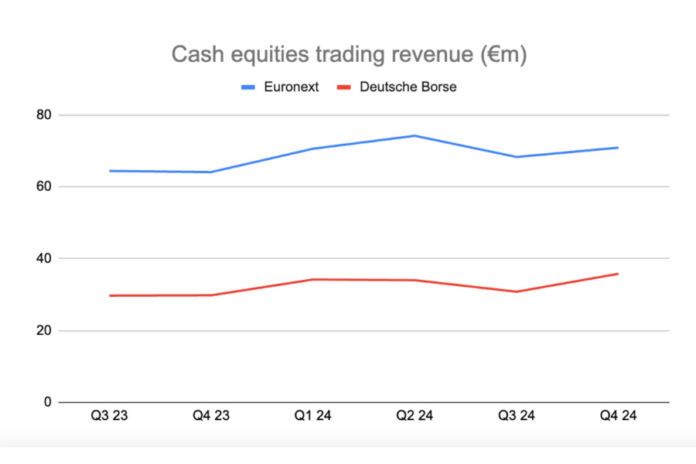



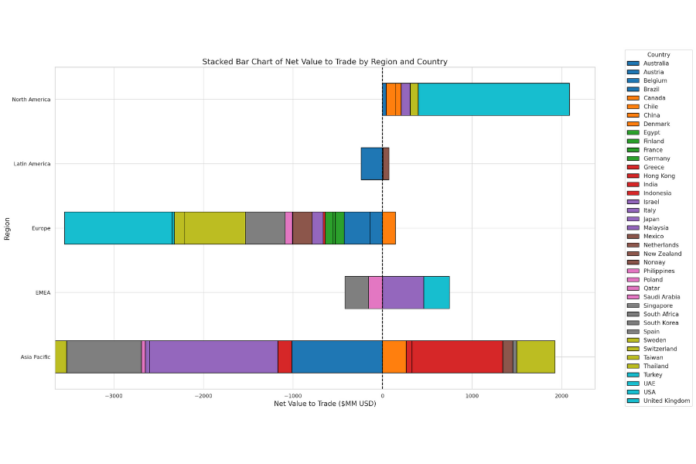
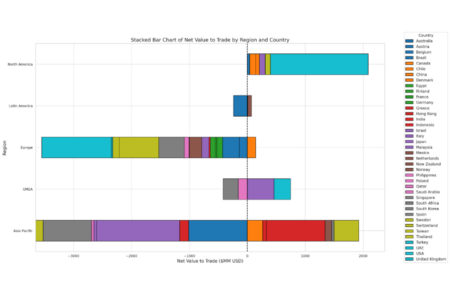
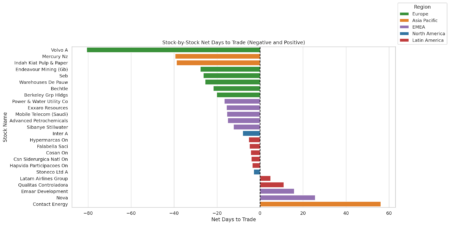


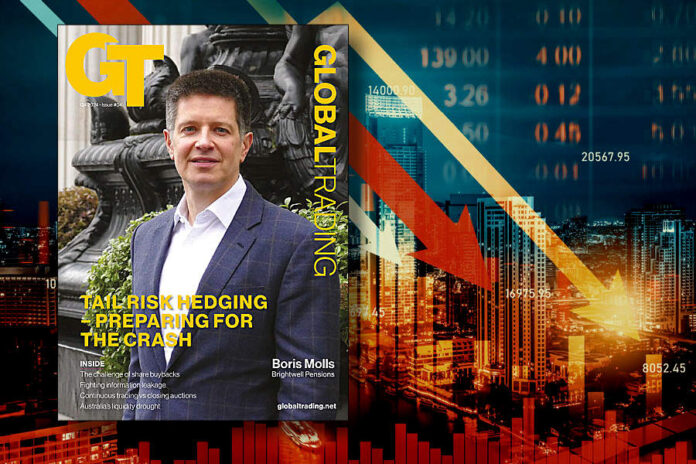
 Global Trading looks at best practice in tail risk hedging for buy-side desks, including strategies, resourcing and dealer relationships.
Global Trading looks at best practice in tail risk hedging for buy-side desks, including strategies, resourcing and dealer relationships.



